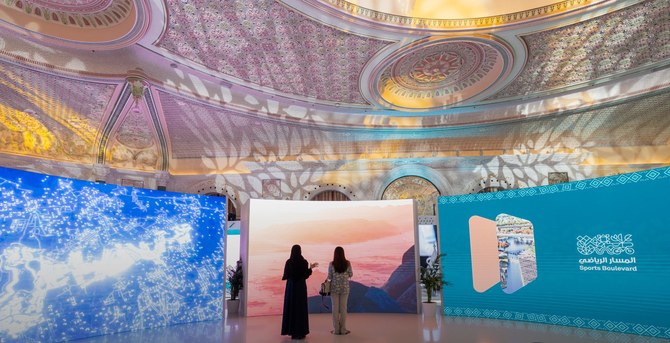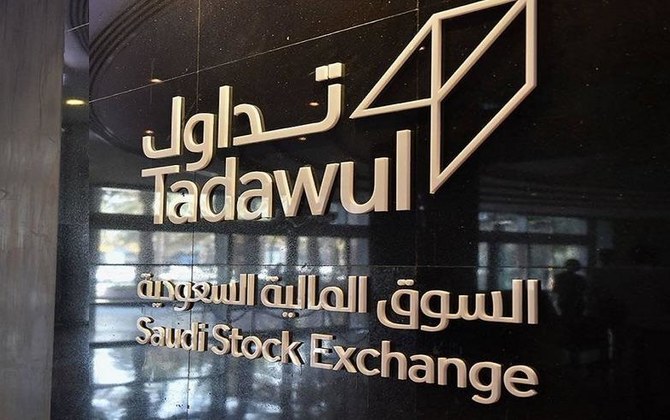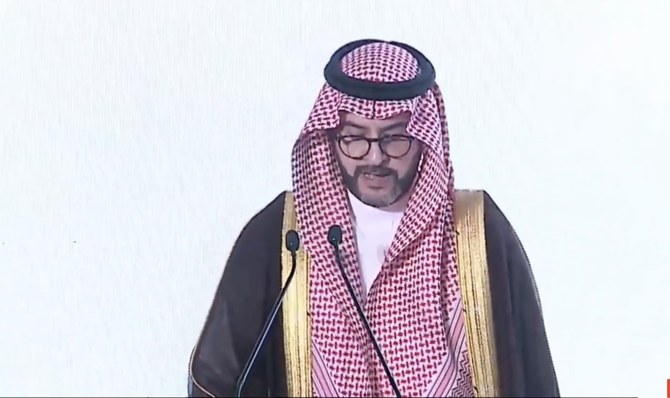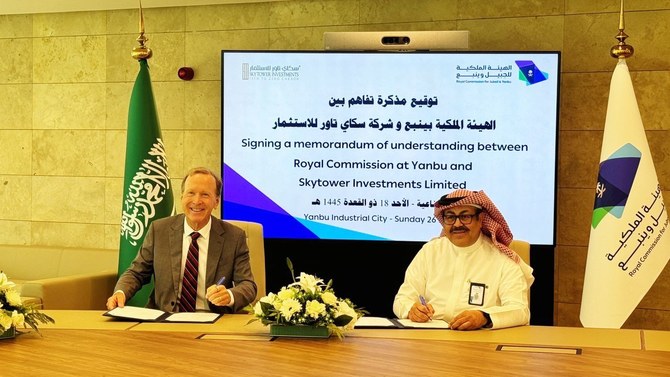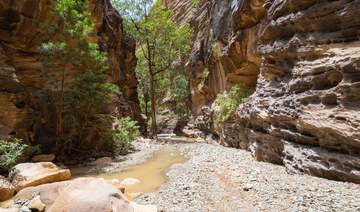DUBAI: If the Saudi Vision 2030 reform plan is to be achieved, it will require dedication, expertise, inspiration and hard work. It will also require money.
Noor Shabib, who is responsible for strategic planning and business development at the Saudi Industrial Development Fund (SIDF), displays all those professional qualities, and is playing a key role in providing the financial resources to see Vision 2030 through.
“I’m a civil servant in the real sense of the word. I do it with pride. I love going to work, and I do it every single day knowing that I’m helping my country,” she said with genuine enthusiasm — a refreshing antidote to some of the skepticism that appears about the Kingdom’s hugely ambitious plan to wean itself off oil.
The SIDF is at the sharp end of that change. It has been around since 1974, a legacy of a previous attempt to grow the industrial base.
But it has been transformed in the past couple of years, and tasked with financing the new industrial strategy through to fruition.
In January in Riyadh, the National Industrial Development and Logistics Plan (NIDLP) was unveiled with a mandate to invest SR1.7 trillion ($453.3 billion) and create 1.6 million jobs in new industrial sectors aside from the Kingdom’s oil-dominated economy: In industrial manufacturing, new energy projects, mining and logistics.
“The SIDF is the main financial partner and enabler of the NIDLP. It’s huge. A lot of the funding is supposed to come from the private sector, and we’re the main financial enabler for private sector projects,” Shabib said.
About the same time that the NIDLP was being unveiled, the SIDF was the recipient of a government-funded increase in its capital, up by some SR40 billion to SR105 billion.
Its responsibility is to direct those funds to the most effective parts of the new Saudi economy, as she described.
“The way the fund works is it provides medium-to-long-term project financing. When you approve a loan — most of our projects are greenfield — it takes about two years until the projects are up and running,” she said.
The only way this transformation will succeed is if everybody is working together.
Noor Shabib
“We work on reimbursements, and we disburse sometimes in one year, sometimes two, in our projects.”
As is the way with Vision 2030, much of our conversation was about pillars, initiatives and bases, but the explanation of priorities was clear — Shabib has recently added communications to her portfolio of responsibilities at the SIDF.
The first goal is to change the fund’s mandate in line with its new responsibilities.
“The current mandate restricts us to working only in industry, and we can’t fund projects in the other sectors. I can only do them currently in industrial cities, but I want to be able to fund them anywhere,” she said.
“We’re waiting for the changes to be approved by the Council of Ministers. We’re going to be launching new products as well — acquisition loans, working capital loans — and we can’t do that until the mandate changes.”
The second initiative is to change the culture of the fund, mainly to make it more responsive to client needs.
“We need to be more client-centric and focus more on client needs,” she said, listing areas that need to be made more efficient, from tailor-made products for small and medium enterprises (SMEs) to making the approvals process faster.
“It could take up to a year to get approval, and we constantly get criticized for this. We know it’s an issue and we’re dealing with it,” Shabib said.
“We’re targeting four to five months, in line with global benchmarks for development and commercial banks,” she added.
“We’ve been trying to see what are the ‘pain points’ in the process — how to optimize while maintaining quality and reducing the requirements on clients to make it easier, quicker and more effective.”
The SIDF also wants to be more development focused and financially sustainable. “We’re establishing risk management functions we don’t currently have, to look at enterprise risk management, credit risk, and to be able to assess risk, which ideally would also increase the speed of your application,” she said.
Another priority is to engage with other agencies of the Vision 2030 program, which Shabib calls “proactively enabling the ecosystem.”
-------
BIO
Born
•Alkhobar, Eastern Province
Education
•Bachelor’s degree in computer engineering, University of Sharjah, UAE
•MBA, Keble College, University of Oxford, UK
•Masters in oil and gas leadership, Graduate Institute, Geneva Institute, Switzerland
Career
•Engineer, drilling and measurements, Schlumberger
•Deputy services manager, Rawabi Trading and Contracting
•Engineering, strategic planning and business development, Saudi Aramco
•Center for Strategic Development, Ministry of Economy and Planning
•Founder, Qudwa
•Assistant director general, strategic planning and business development, SIDF
-------
For example, the SIDF will increasingly deal with land authorities to help acquire space for industrial development, and to encourage Saudization of the workforce and supply chain in the Tawteen project, through which it will collaborate with the “large national champions” such as Saudi Aramco, SABIC and mining company Ma’aden.
“We believe the only way this transformation will succeed is if everybody is working together,” she said, stressing that this was a basic message handed down consistently by the fund’s chairman, Energy Minister Khalid Al-Falih.
Shabib said getting different parts of the SIDF and the NIDLP working in unison at the same pace was one of the biggest challenges of her job.
“Even if you want to go fast, you have to manage everybody else’s pace. You have to manage your team not to burn out. This is a long-term journey, not a quick thing,” she added.
The complexity of the SIDF’s ambition became apparent as she reeled off a list of the projects that the fund has set up.
They include Afaq, a scheme to stimulate SMEs and entrepreneurial activity by offering them preferred terms and partnerships with incubators; and Tanafusia, a plan to encourage energy efficiency and promote digitalization in an effort to reduce costs.
Part of the SIDF’s remit is to cultivate what it calls “promising areas” in the Kingdom, which are not necessarily the big metropolitan hubs of the Eastern Province, Riyadh and Jeddah.
It awards grants on an increasing scale according to which part of the Kingdom the project is located, with as much as 75 percent funding available in parts of the north and southwest, compared to 50 percent in the capital.
At the end of the day, the SIDF will only be as good as the people who work there, and Shabib is lyrical about the potential it has to not only help transform the economy, but also the wider social and cultural changes underway in the Kingdom.
One aspect of the SIDF’s work that she is particularly proud of is that it is significantly more self-reliant than other organizations.
“We didn’t bring in consultants to do everything. That would’ve been a lot quicker, but our consultants were always a minority in the teams,” she said.
“They were there to help with benchmarking and framing, rather than developing ideas and coming up with solutions. It’s the best way to do it — you engage with your own people to make things happen.”
Over its long history, the SIDF has acted as a kind of incubator for executive talent in the Kingdom, and this will accelerate with its expanding role.
A number of senior corporate executives and ministers graduated from the SIDF “academy,” Shabib pointed out.
She said working for the fund ranks highly in the list of prestigious jobs in the Kingdom. “People in Riyadh relate to the SIDF in the financial industry the way that people in the Eastern Province relate to Saudi Aramco,” she added.
Inevitably, she will be seen as a role model for aspiring and newly empowered women in the Kingdom’s economic and financial sector, and she relishes that challenge.
“The fund has made fantastic strides in terms of women. Up until two years ago, in the first 43 years of its life, it didn’t have any women. It was completely male dominated,” she said.
“Then we started hiring women. We’re now at about 10 percent, with women at all levels, across all parts of the organization — in credit, in human resources and as engineers,” she added.
“The next step is to focus on ensuring that we retain these women, and we need to work on inclusion and cultural awareness,” Shabib said.
“There’s no specific target, just an effort to encourage diversity. Last year, we said in the credit program 50 percent of new graduate intake had to be women,” she added.
“It’s a very big responsibility. Just being in my place means I give others hope to get there. There’s pressure to be the best that I can be so I can be a role model for others,” Shabib said.
“It keeps me straight, and affects how I react and behave. I’m constantly thinking, ‘How would this look to someone younger than me?’”










